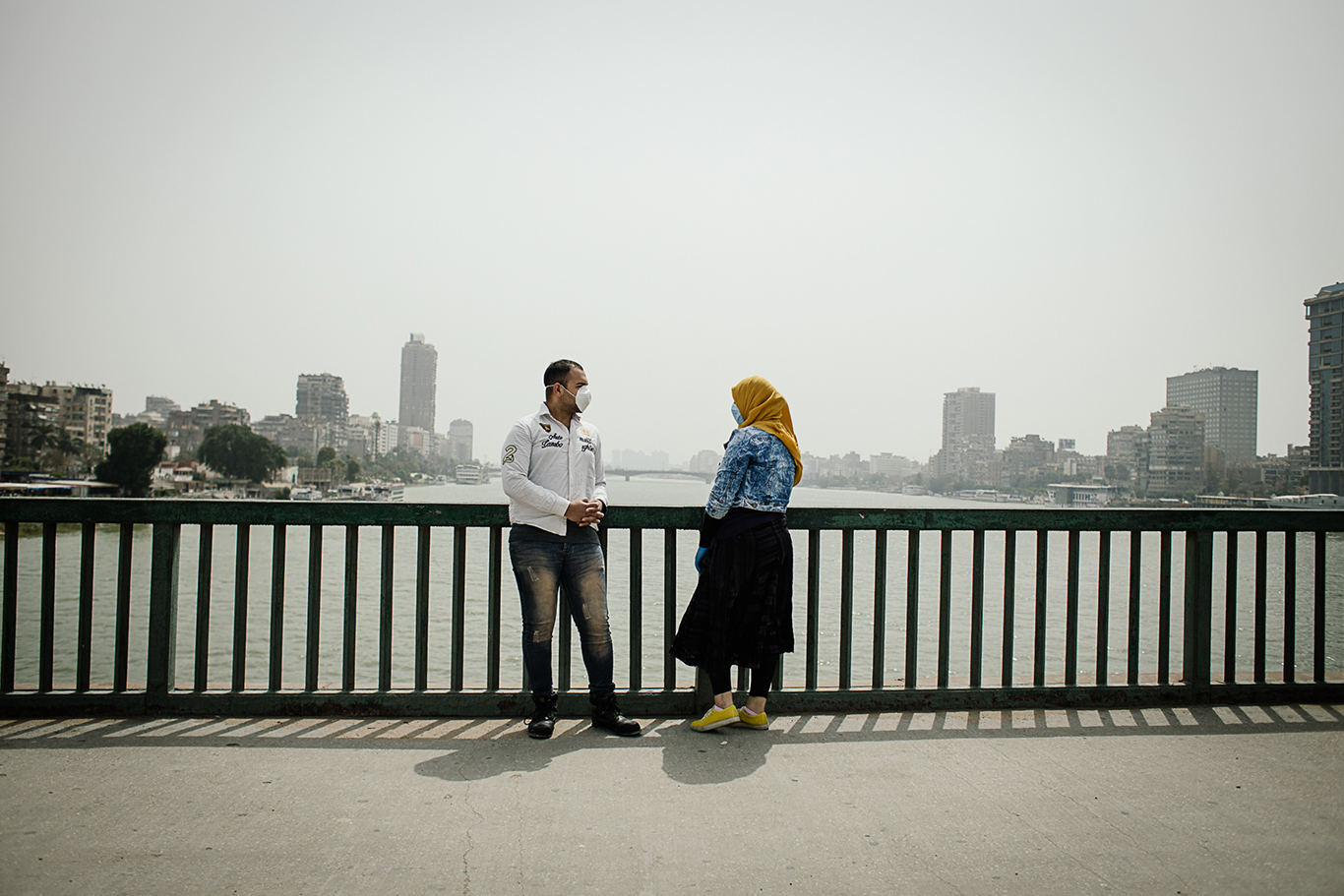“At first, I asked for things – outings, clothes – that were mostly met with disagreement. When I got older, I learned that if I wanted to do things, I couldn’t ask for them [from parents]. So I lied about basically everything,” says Salma Aamer, 22, an psychology alumna from the American University in Cairo (AUC).
Children of strict households often find themselves becoming crafty adults, some going as far as creating entirely different personalities that are only present around their parents or other authority figures in their families.
Strict parents, often referred to as ‘helicopter parents,’ are known to pay close attention to their children’s behavior, typically taking on responsibility for their successes and failures. Among the restrictions of helicopter parents are romantic relationships.
Egyptian culture leans towards collectivism, meaning that the needs of the group are emphasized over the needs of the individual, leaving less room for individuality and difference in opinion.
According to a study titled ‘Parenting Style, Individuation, and Mental Health of Egyptian Adolescents’ published by the Journal of Adolescence in 2006, the main parenting style used in Egypt is the authoritarian style. The authoritarian style is an extremely strict parenting style. It places high expectations on kids, with no feedback. It highlights control and discipline.
The study further specifies that this parenting style tends to affect young women and their sexual identities. When it comes to young men, it applies to responsibility and duty towards the household. Despite the pressure on young boys and men in the matter of dating and relationships, the study claims that they tend to be allowed more privileges.
Therefore, while some young women are able to discuss their dating and relationships freely with their parents, many others still have to resort to furtive in-car relationships and hiding in unknown cafes and restaurants to pursue romantic interests.
This is further exacerbated when one partner goes against the conventions set by the family, such as the case of relationships that are interfaith, with outstanding age gaps or disparity in wealth.
Aamer is one of many who grew up under such scrutiny.
She details that the parenting style under which she was raised was not static – as she grew older, some elements changed and adapted to her age. Dating, however, remained off-limits.

The ‘friend-parent’
In families like Aamer’s, strictness is a team effort – a culture imposed by both parents. Yet, in other households, only one of the two is the source of the authoritarian parenting style.
This is the case with Lama Nabil’s parents, namely her father. As a result, her relationship with each of her parents is entirely different from the other.
“My mother has always had this crazy intuition, so she pretty much figured it out on her own every time I tried to hide something from her. After all this struggle, I found that she was okay with me dating, but with limitations,” says Lama Nabil, a 19-year-old student at the (AUC).
Her father, on the other hand, is unaware of her relationships; she consequently feels closer to her mother.
According to the women we spoke to, the “friendlier parent” role usually falls on the mother. The mother of Sara Badr- a 21-year-old student at Ecole Supérieure Libre des Sciences Commerciales Appliquées (ESLESCA, Egypt) university- also plays the role of the friendlier parent in the family. Their close mother-daughter relationship stands in stark contrast with Badr’s relationship with her father, which is mostly governed by fear.

Tracking and investigations
Badr recounts that her father, whose stance on dating is unyielding, learned about her current relationship by checking exchanges on her phone via her phone log history.
“It was horrible,” she recounts. “He said he’d take extreme measures. He took my phone away after making me break up with the guy I was dating. I was punished. I wasn’t allowed to leave my house for a month.”
For Marie Claire*, a 19-year-old student also at AUC, her family, on the other hand, is not averse to dating as long as they approve of the partner. There is, however, another catch.
Claire’s parents resort to tracking her phone via software, Life360. An application that allows people to track each other’s locations through their smartphones, and for parents to keep a secure eye on their children.
“I’ve only had one boyfriend. If I wanted to see him, I’d just say I was with other friends […]. For Life360, I used another software to reroute my location on Life360,” Claire details.
While Badr was not tracked like Claire was, she would have to make an effort just to see her boyfriend. This included lying about where she was, or the company she kept.
All three previously-mentioned women had one go-to friend whose name they used to ward off suspicions.
“Sometimes, saying that I’m with a friend is much easier than trying to get them to agree to anything I want to do. The reality is that there will always be something I do that they don’t like or disagree with. So, I say I’m with a friend,” recounts Aamer.
While some struggle to find common grounds with their parents, others have found comfort in living separate lives. These lives seemed socially adequate on the outside while giving the space for one to partake in secret activities on the side.
In terms of dating with strict parents, some take risks, while others just prefer to stay safe. In the end, it depends on whether the experience is worth it all.
*Name was changed for privacy







Comments (5)
[…] The Distorted Perceptions of Living with an Eating Disorder in Egypt The Relationship Risk: The Dating Experience with Strict Parenting […]
[…] The Relationship Risk: The Dating Experience with Strict Parenting […]